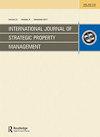Internal Audit and Business Resilience in Power Sector. A Case of Geothermal Development Company
IF 2
4区 管理学
Q3 MANAGEMENT
International Journal of Strategic Property Management
Pub Date : 2023-05-16
DOI:10.53819/81018102t6055
引用次数: 0
Abstract
Over years, internal auditors’ roles are changing from checking compliance issues to giving a strategic view of the organization processes. Internal auditors play noble role in evaluating the anticipated level of success of a project. This research sought to establish how risk management, business controls, governance and business advisory contribute to business resilience in Geothermal Development Company Limited. The study was anchored on the balanced score card, strategic choice theory, transient advantage theory, the strategic management theory, complexity theory and the normal accident theory. The study focused on 3 GDC operation regions with a target population of 200 staff based in the office and in the field. The research study used primary data collection method employing a semi-structured questionnaire. Post collecting data, descriptive and inferential statistics were employed in the analysis. Correlation and regression analysis was conducted to establish the relationships between the variables. The presentation of results was through tables and figures. The study found that risk management had a positive and significant effect on business resilience of GDC; business advisory had a positive and significant effect on business resilience of GDC; internal controls had a positive and significant effect on business resilience of GDC; and governance had a positive and significant effect on business resilience of GDC. The study concluded that the internal audits positively and significantly influenced business resilience of GDC. From the study, internal audit plays a critical role in enhancing business resilience at GDC through effective risk management, robust governance, and reliable internal business controls. The study recommended organizations to place internal audit functions at strategic hierarchical positions as well as implement its recommendations. To bolster business resilience at GDC, it is recommended the company strengthen risk management practices, enhance governance structures, and improve internal business controls. Investing in internal audit capacity building and expanding business advisory services can further optimize the internal audit function. Additionally, GDC should consider benchmarking and collaborating with peer organizations to identify areas for improvement and share best practices within the power sector. Keywords: Internal Audits, GDC, risk management, business advisory, business controls, governance, business resilience电力行业内部审计与业务弹性。地热开发公司案例
多年来,内部审计员的角色正在从检查遵从性问题转变为提供组织流程的战略视图。内部审计师在评估项目的预期成功程度方面发挥着重要作用。本研究旨在建立风险管理、业务控制、治理和业务咨询如何促进地热开发有限公司的业务弹性。研究主要基于平衡计分卡理论、战略选择理论、瞬时优势理论、战略管理理论、复杂性理论和正常事故理论。该研究的重点是3个GDC业务区域,其办公室和外地工作人员的目标人口为200人。本研究采用半结构化问卷法收集原始数据。收集数据后,采用描述性统计和推理统计进行分析。通过相关分析和回归分析来确定变量之间的关系。结果是通过表格和数字来展示的。研究发现,风险管理对GDC的业务弹性有显著的正向影响;业务咨询对GDC的业务弹性有显著的正向影响;内部控制对GDC的业务弹性有显著的正向影响;治理对GDC的业务弹性有显著的正向影响。研究发现,内部审计对GDC的业务弹性有显著的正向影响。从研究中可以看出,内部审计通过有效的风险管理、稳健的治理和可靠的内部业务控制,在提高GDC的业务弹性方面发挥着关键作用。该研究建议各组织将内部审计职能置于战略层级位置,并执行其建议。为了增强GDC的业务弹性,建议公司加强风险管理实践,完善治理结构,完善内部业务控制。投资内部审计能力建设,拓展业务咨询服务,可以进一步优化内部审计职能。此外,GDC应考虑制定基准并与同行组织合作,以确定需要改进的领域,并在电力行业内分享最佳实践。关键词:内部审计、GDC、风险管理、业务咨询、业务控制、治理、业务弹性
本文章由计算机程序翻译,如有差异,请以英文原文为准。
求助全文
约1分钟内获得全文
求助全文
来源期刊
CiteScore
4.00
自引率
18.50%
发文量
23
审稿时长
15 weeks
期刊介绍:
International Journal of Strategic Property Management is a peer-reviewed, interdisciplinary journal which publishes original research papers. The journal provides a forum for discussion and debate relating to all areas of strategic property management. Topics include, but are not limited to, the following: asset management, facilities management, property policy, budgeting and financial controls, enhancing residential property value, marketing and leasing, risk management, real estate valuation and investment, innovations in residential management, housing finance, sustainability and housing development, applications, etc.

 求助内容:
求助内容: 应助结果提醒方式:
应助结果提醒方式:


